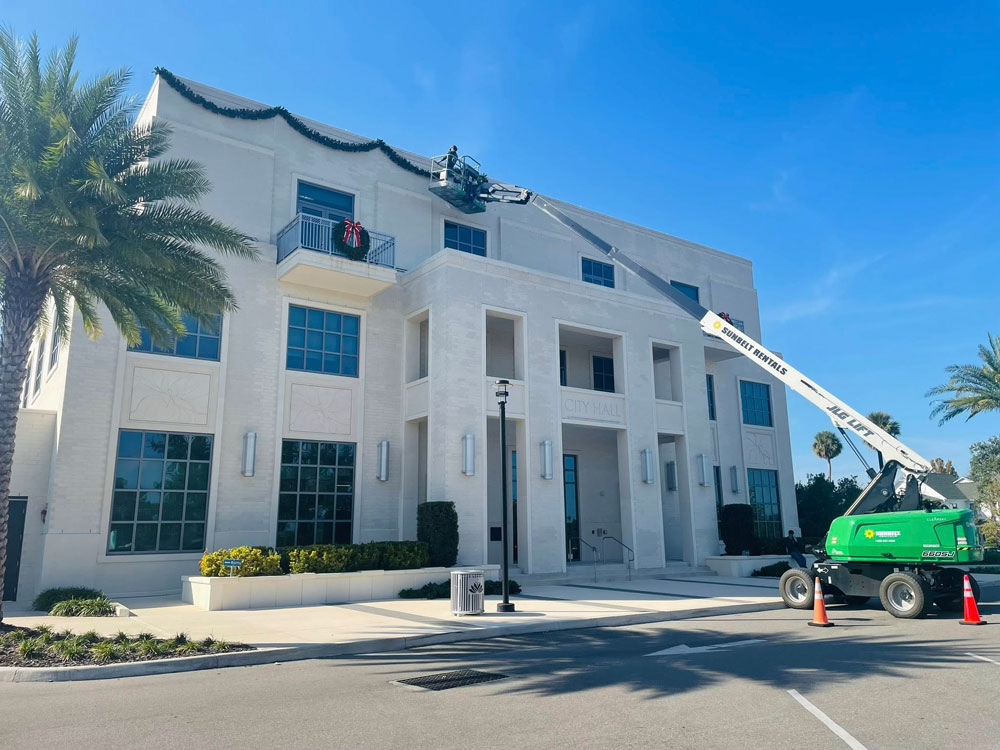
An administrative law judge Tuesday rejected Ocoee’s challenge to a decision by the Florida Department of Commerce that changes to a city comprehensive plan were “null and void” because of a controversial new state law.
The law, passed during this spring’s legislative session, has drawn criticism from cities and counties throughout Florida and two constitutional challenges in Leon County circuit court.
Part of the law affects counties included in federal disaster declarations after last year’s hurricanes Debby, Helene and Milton. In part, it bars cities and counties in those areas from approving “more restrictive or burdensome” changes to comprehensive plans or land-development regulations through Oct. 1, 2027. The prohibition was retroactive to Aug. 1, 2024.
Cities and counties contend that the law has effectively frozen comprehensive plans, which are designed to serve as blueprints for development and land-use decisions.
Unlike the lawsuits in circuit court, Ocoee filed its case in September at the Division of Administrative Hearings. It challenged the actions of the Department of Commerce, which oversees land planning in the state and on Aug. 27 turned down the city’s proposed comprehensive plan changes.
The department said in a letter to the city that it had found conflicts between the revised comprehensive plan and the new state law.
“These conflicts render the proposed and adopted comprehensive plan amendment null and void ab initio,” the department said, according to Tuesday’s ruling by Administrative Law Judge E. Gary Early.
Ocoee contended in the challenge that the department’s interpretation of the law should have gone through a rulemaking process — and, as a result, was an improper “unadopted rule,” under administrative law. Also, the city argued the department had overstepped its authority, what is known as an “invalid exercise of delegated legislative authority.”
But Early rejected the arguments, primarily focusing on the rulemaking issue. He said Ocoee had not shown that the department’s interpretation of the law applied widely to local governments.
He wrote that “the issue that is dispositive is whether the correspondence (the letter from the department to Ocoee) espouses an ‘agency statement of general applicability that implements, interprets, or prescribes law or policy,’ thus meeting the definition of a rule. … Under the record developed here, it does not.”
“The only competent, substantial evidence in the record is that the department reviewed the (Ocoee) plan amendment, and identified conflicts between (the law) and policies in the plan amendment, each listed by number,” Early wrote. “Based on its review of the plan amendment, the department, rightly or wrongly, determined the plan amendment to be null and void ab initio.”
The circuit-court lawsuits were filed by a collection of cities and counties and the growth-management group 1000 Friends of Florida. Judge Angela Dempsey on Friday issued an order consolidating the cases.
–Jim Saunders, News Service of Florida





























Jean says
Why is it not mentioned in this article that the restrictions only apply to a year from a declared natural disaster? It has not been one for over a year now.
Pogo says
@Welcome to Florida
… Tyranny, and your siblings: Absolutism, Autocracy, Despotism, and you too, little Dictatorship — my, but you’re all grown up looking in your little lift boots and cowboy hat.
And so it goes
https://www.google.com/search?q=mine+is+mine+yours+is+mine
James says
Local governments are stupid and should be over-ruled by the state as often as possible. Look at our local officials…do you really want Mike Norris making big decisions around here? I don’t. Hell, the people we elect often don’t finish their terms for whatever reasons. The Legislature was right to ignore the cities demands and so to is the Judge.
Laurel says
Sorry James, but you need to understand what’s happening in depth.
One of the main backers of killing home rule is AirBnB and other world wide vacation rental mega corporations. They claim it’s too difficult for them to abide by differing ordinances, so they should be able to overrun local rule. You would lose total control of your neighborhood. Any company could move next door to you, and sue you if try to fight them, or sue you if your long established home is somehow bothersome to their new business.
Belle Glade, Ft Lauderdale, Tallahassee, Orlando, Titusville, Marathon, Panama City, Kissimmee and Boca Raton all have different needs, different businesses, different populations, different eco systems, and so on. The state doesn’t know what’s best for each individual county and city.
Unless you are a big developer, big corporation or big, investor group, who wants to run roughshod over residents, and small local businesses, so that they have no say about where they live and work, then you do not want to kill home rule.